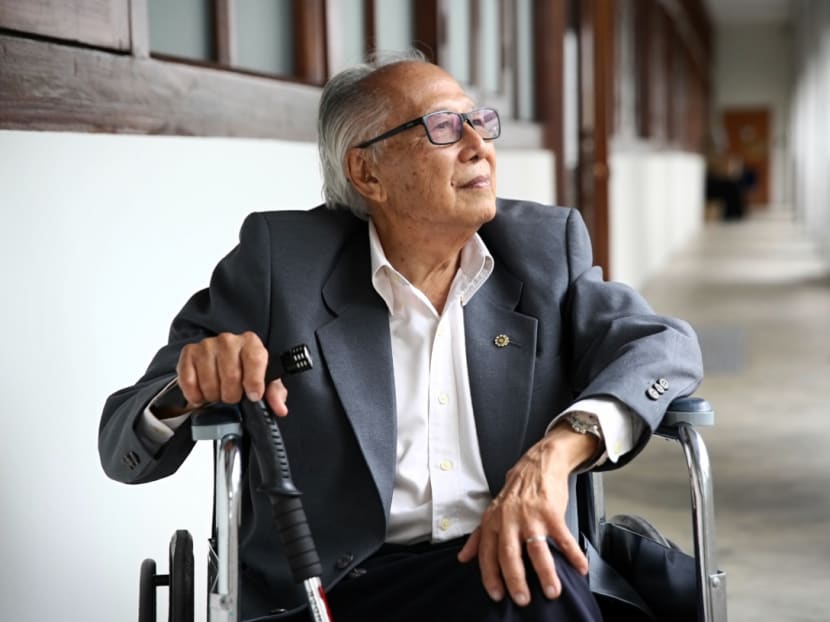War survivors weigh in on referencing Syonan-to
SINGAPORE — Retiree Raymon Huang was 15 years old when the Japanese Occupation began, and he had to stop going to school to help his family survive by taking on odd jobs such as selling vegetables and helping out at poultry farms.

War survivor Raymon Huang at the official opening of 'Syonan Gallery: War and Its Legacies', located at the Old Ford Factory, on 15 Feb, 2017. Photo: Nuria Ling/TODAY
SINGAPORE — Retiree Raymon Huang was 15 years old when the Japanese Occupation began, and he had to stop going to school to help his family survive by taking on odd jobs such as selling vegetables and helping out at poultry farms.
Seventy-five years on, the vivid memories remain etched in his mind. But Mr Huang, 90, said: “To me, Singapore was Syonan, you couldn’t escape it ... I know it’s painful to some people, to those who lost their loved ones and suffered, but whether the name is used or not, the pain will still be there.”
Mr Huang is one of the war survivors featured in the Syonan Gallery: War And Its Legacies exhibition, providing an oral history of what life was like during the occupation.
After the war, he went on to work at the Singapore Tourist Promotion Board and Singapore Broadcasting Corporation (SBC). The former director of commercial operations, radio and public relations at SBC said: “Japanese Occupation days taught us to be survivors, made us try to do new things to help ourselves.”
Like Mr Huang, fellow war survivor Chin Kah Chong, 86, was similarly philosophical about the name. “To me, the name is harmless now,” said Mr Chin, who was a war correspondent for Pana News Agency, covering the Vietnam War in 1965.
Meanwhile, the debate continues to rage on.
Creative producer Gracie Teo, 37, felt “the choice of name could have been more sensitive to (take into consideration) the generation who went through the Sook Ching incident”. She was referring to a Japanese military operation aimed at purging or eliminating anti-Japanese elements from the Chinese community in Singapore.
But Mr Timothy Wee, 32, pointed out that in Germany, many concentration camps still retain their original names — despite the painful memories they evoke. “It would have been easy to sweep unpleasant details under the rug of history, but I applaud the National Archives of Singapore’s brave decision,” said the freelance travel writer, who felt that the choice of name was “a good way to start a national conversation on the Syonan experience”.






